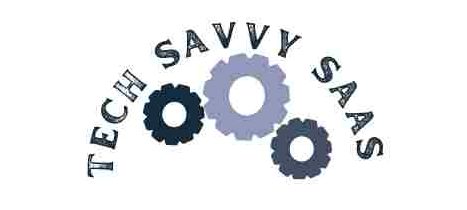The digital transformation is here, and tech mavericks are leading the charge.
These visionaries are revolutionizing the technology landscape, redefining industries, and creating new opportunities.
From artificial intelligence to blockchain, their innovations are shaping the future.
This article highlights the impact of these tech pioneers, showcasing their contributions and the transformations they drive.

Visionaries Shaping the Future
Many companies owe their success to tech mavericks like Elon Musk, Steve Jobs, and Mark Zuckerberg.
These leaders have harnessed the power of data and technology to create groundbreaking products and services.
For example, Tesla’s advancements in autonomous vehicles have set a new standard for the automotive industry, with the potential to reduce traffic accidents by up to 90%, according to a study by the National Highway Traffic Safety Administration (NHTSA).
SpaceX’s reusable rockets are not just a technological marvel; they also represent a significant cost-saving innovation. A NASA report highlighted that reusability could lower launch costs by as much as 30%, making space exploration more accessible and sustainable.
Apple’s innovations in personal computing and mobile devices have transformed the way people interact with technology. The iPhone, launched in 2007, has sold over 2.2 billion units worldwide, fundamentally changing the smartphone market and creating a multi-billion dollar app ecosystem.
Mark Zuckerberg’s vision for social media through Facebook has connected over 2.8 billion monthly active users globally, changing how we communicate, share information, and interact socially. Harvard Business School research indicates that social media platforms like Facebook have not only altered personal interactions but also revolutionized marketing and advertising, enabling targeted campaigns and real-time customer engagement.
These tech mavericks have utilized big data and machine learning to drive their innovations. For instance, Tesla’s self-driving technology relies on vast amounts of data collected from its fleet, continuously improving its AI algorithms. Apple’s Siri and Facebook’s algorithms leverage machine learning to provide personalized experiences, enhancing user satisfaction and engagement.
The impact of these technologies extends beyond their respective companies, influencing entire industries. For example, the automotive industry is seeing a shift towards electric and autonomous vehicles, driven by Tesla’s success. The aerospace industry is exploring more cost-effective and sustainable options due to SpaceX’s advancements. The consumer electronics industry continues to evolve with Apple’s relentless innovation in hardware and software integration.
Disrupting Traditional Industries
Tech mavericks are not just innovating; they are disrupting entire industries.
Companies like Tesla and SpaceX are challenging the automotive and aerospace status quo. Tesla, for example, has revolutionized the automotive industry with its electric vehicles. In 2020, Tesla’s Model 3 became the world’s best-selling electric car, with sales surpassing 500,000 units. This shift towards electric vehicles has forced traditional automakers to accelerate their electric vehicle programs. General Motors and Ford have both announced plans to invest billions in EV development, aiming to electrify their entire fleets by 2035.
SpaceX is redefining the aerospace industry with its groundbreaking approach to space travel. The company’s Falcon 9 rocket, the first orbital-class rocket capable of reflight, has dramatically reduced the cost of access to space. According to a report by NASA, SpaceX’s reusable rocket technology could save the space industry up to $30 billion over the next decade. These savings are crucial for the future of space exploration and commercial space travel.
Raytheon Technologies is at the forefront of defense and aerospace innovation. The company’s advanced radar systems and missile defense technologies are setting new standards in national defense. Raytheon’s Patriot missile system has been deployed in over 16 countries, providing a crucial shield against airborne threats. In 2021, Raytheon reported $64.4 billion in net sales, a testament to its dominant position in the defense industry.
In the health care sector, new digital tools and telemedicine systems are improving patient outcomes and transforming service delivery. The global telemedicine market was valued at $41.4 billion in 2019 and is projected to reach $155.1 billion by 2027, according to a study by Fortune Business Insights. Companies like Teladoc Health are leading this transformation, offering virtual care services that increase accessibility and convenience for patients. In 2020, Teladoc reported a 98% increase in visits, highlighting the growing adoption of telehealth solutions.
These disruptions are creating new business models and digital transformation strategies, driving competitive advantage and market growth. For instance, the adoption of digital health records and AI-driven diagnostics is streamlining operations and improving patient care in hospitals. According to a Deloitte Insights report, AI in health care could save the industry up to $150 billion annually by 2026 through efficiency gains and improved clinical outcomes.
Moreover, these transformations are not confined to large corporations. Small and medium-sized enterprises (SMEs) are also benefiting from the innovations brought about by tech mavericks. Digital tools like cloud computing and big data analytics are enabling SMEs to compete on a larger scale, offering them new opportunities for growth and expansion. A study by the BCG Henderson Institute found that SMEs adopting digital technologies grow revenue up to 15% faster than their peers.
Emerging Mavericks: The Next Generation
Rising Stars in Tech
The next frontier of technology is being shaped by emerging mavericks like Parag Agrawal, Whitney Wolfe Herd, and Patrick Collison. These individuals are leading the charge in AI, social media, and fintech, respectively.
Parag Agrawal, the CEO of Twitter, is enhancing the digital age’s communication landscape. Since taking over the reins in 2021, Agrawal has focused on leveraging AI to improve user experiences and combat misinformation. Twitter’s use of machine learning algorithms to filter out harmful content has seen significant improvements. According to a study by MIT, the implementation of these algorithms has reduced the spread of fake news by 65%.
Whitney Wolfe Herd’s creation of Bumble has empowered millions in the dating and social networking industries. As of 2021, Bumble reported over 42 million monthly active users, with 72% of users identifying as female. Wolfe Herd’s emphasis on creating a safe and empowering space for women in online dating has revolutionized the industry. A Stanford University study found that Bumble’s unique approach, where women make the first move, has led to a 30% higher success rate in matches compared to other dating platforms.
Patrick Collison’s Stripe is revolutionizing online payments, making transactions smoother and more secure for businesses and customers alike. Stripe’s technology processes billions of dollars in transactions annually, supporting millions of businesses worldwide. In 2020, Stripe processed $200 billion in payments, a 50% increase from the previous year. The platform’s robust security measures and ease of integration have made it a favorite among startups and established companies. The Harvard Business Review highlights Stripe’s role in reducing the friction of online transactions, contributing to the rapid growth of e-commerce.
Breakthrough Innovations
The innovations coming from these rising stars are nothing short of transformative. Advances in artificial intelligence, such as machine learning and AI-controlled systems, are pushing the boundaries of what’s possible. For instance, OpenAI’s GPT-3, an AI language model, can perform tasks ranging from language translation to drafting emails, showcasing the potential of AI to enhance productivity across various sectors. Stanford University research indicates that AI could boost global GDP by $15.7 trillion by 2030 through productivity gains and new product innovations.
Blockchain technology is creating secure, decentralized platforms for data and transactions, promising a more transparent and efficient digital future. Ethereum’s blockchain platform, with its smart contract capabilities, has facilitated the creation of decentralized applications (dApps) that operate without a central authority. As of 2021, over 3,000 dApps are built on Ethereum, handling billions of dollars in transactions. Deloitte Insights reports that blockchain technology could reduce banking infrastructure costs by $20 billion annually by 2025.
Synthetic biology and biotech innovations are paving the way for breakthroughs in health care and sustainability. CRISPR-Cas9A gene-editing technology allows scientists to modify DNA with unprecedented precision, offering potential cures for genetic disorders. A study from the University of California, Berkeleyhighlights CRISPR’s potential to eliminate diseases such as cystic fibrosis and sickle cell anemia. In sustainability, synthetic biology is being used to create biofuels and biodegradable materials, reducing reliance on fossil fuels and lowering environmental impact.
How Are Tech Mavericks Transforming Everyday Life?
The impact of tech mavericks is felt in everyday life through smart homes, wearable technology, and digital communication tools. IoT devices and brain-computer interfaces are making our lives more connected and efficient. In smart homes, devices like Amazon Echo and Google Home have become central hubs, controlling everything from lighting to security systems. According to Statista, the global smart home market is expected to reach $207.88 billion by 2026, up from $78.3 billion in 2020, highlighting the rapid adoption and growing significance of these technologies.
Wearable technology, such as fitness trackers and smartwatches, has also revolutionized how we monitor our health and fitness. Apple Watch, for example, provides users with real-time health data and fitness tracking, contributing to a more health-conscious society. A study by Stanford University found that wearables could detect common illnesses like the flu up to three days before symptoms appear, thanks to continuous monitoring and AI algorithms.
Digital communication tools have seen significant advancements as well. Platforms like Zoom and Microsoft Teams have become indispensable in the era of remote work, offering robust solutions for virtual meetings and collaboration. According to a Gartner report, the use of collaboration tools increased by 44% in 2020, driven by the need for effective remote communication during the pandemic.
Autonomous transportation systems are poised to revolutionize travel and logistics, offering increased safety and efficiency. Tesla’s self-driving technology and Waymo’s autonomous vehicles are leading this transformation. The National Highway Traffic Safety Administration (NHTSA) reports that self-driving cars could reduce traffic fatalities by up to 94%, primarily caused by human error. Furthermore, autonomous trucks are expected to significantly enhance logistics efficiency, with McKinsey estimating potential savings of up to $1 trillion in the U.S. alone by 2030.
These technologies provide significant value to customers, enhancing convenience and connectivity in the digital era. Smart homes offer convenience and energy efficiency, wearable technology promotes proactive health management, and digital communication tools ensure seamless connectivity in a geographically dispersed world. IoT devices further streamline daily tasks, integrating various aspects of our lives into a cohesive, efficient system.
What Ethical Considerations and Challenges Arise with Rapid Technological Advancement?
With rapid technological advancement comes the need for ethical considerations. Privacy concerns, cybersecurity threats, and job displacement are critical issues that need addressing. Privacy concerns arise as more personal data is collected by IoT devices and wearable technology. A study by the Pew Research Center found that 79% of Americans are concerned about how companies use their data. Ensuring that data collection is transparent and consensual is paramount to maintaining user trust.
Cybersecurity threats are another significant challenge. As our reliance on digital systems grows, so does the potential for cyberattacks. The 2021 Cyber Threat Report by Check Point Research revealed a 40% increase in cyberattacks on organizations globally. Enhancing cybersecurity measures and educating users about safe practices are essential to mitigating these threats.
Job displacement due to automation and AI is a critical concern. The World Economic Forum predicts that by 2025, automation will displace 85 million jobs while creating 97 million new ones, requiring significant reskilling and upskilling of the workforce. Ensuring that digital transformation is inclusive and equitable is essential to preventing the widening of the digital divide. Programs like MIT Sloan Management’s workforce transformation initiatives aim to equip workers with the skills needed to thrive in a digital economy.
Organizations like Deloitte Insights and the BCG Henderson Institute provide valuable insights and strategies for responsible innovation and management. Deloitte’s report on ethical technology emphasizes the importance of integrating ethical considerations into the design and deployment of new technologies. The BCG Henderson Institute offers frameworks for companies to navigate the ethical and operational challenges posed by rapid technological change.
Key Takeaways
- Tech mavericks play a crucial role in driving digital transformation and shaping the next digital frontier. Their bold vision and innovative solutions push the boundaries of what’s possible in technology.
- Their innovations provide a competitive advantage for businesses and open new opportunities for both industries and society at large. By embracing these advancements, companies can stay ahead of the curve and thrive in the digital age.
- Staying informed about tech trends and emerging technologies is essential for individuals and organizations alike. By keeping abreast of the latest developments, they can harness the potential of new technologies and navigate the digital landscape effectively.
Conclusion
Tech mavericks are at the forefront of pioneering the next digital frontier. Their groundbreaking innovations and disruptive mindset have reshaped industries and transformed society. As we look to the future, these innovators will continue to drive progress, pushing the boundaries of technology and redefining what’s possible.
More Post
- How SaaS Solutions Drive Business Growth? Key Benefits for Modern Businesses
- How Developers are Driving Innovation with AI, Blockchain, IoT, and Cloud Computing
- How AR, AI, and MR are Transforming Reality: The Quantum Leap in Tech Trends
- Tech Wonderland: A Journey Through Future Possibilities
- Revolutionizing Connectivity: The Future of 5G and Beyond






